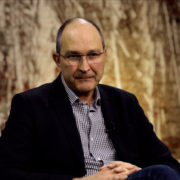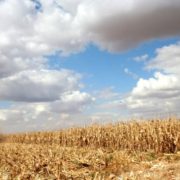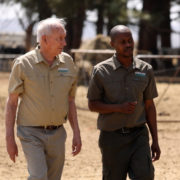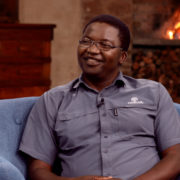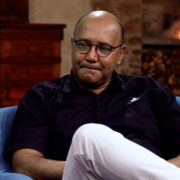by Angelique Adcock & Dr Alison Hofer
Did you ever ask yourself: “How did I get here?” or, “What am I doing with my life?” Some days it can feel like you work and love with all you have, and yet life can throw your efforts back in your face. And that can really hurt. And it can set you back. Sometimes, then, we have to dig deep to rediscover our purpose and our joy. Rediscovering what makes you joyful, and what enriches your life with purpose, can reinvigorate you. It can restart your engine and help you rev your way out of an emotional ditch.
When we feel disappointed in life, even angry, and we can think “Man, life has kicked me in the pants”. On days like that, the word joy seems the last thing on your mind, you cannot even remember much about your purpose and could you even muster the energy to go in search of it within yourself?
Sometimes your purpose, your joy and who you are, gets hidden over the years. Your true self may slowly, almost imperceptibly, get layered over by obligations, deadlines and keeping everyone happy. Slowly your talents and sources of joy may be put aside for good and sound reasons. For example, someone may get great joy from singing, for example: but her banking job means she has no time to go off for singing lessons or long choir rehearsals; or she lives in a flat with neighbours, or her new baby needs to sleep, or…all of the above! So, even though it brings her great joy, and she knows she has talent, she gets practical and thinks: ‘Let me get real, singing is great fun, but I need to sensible and logical, and singing just does not fit into my life’. Sound familiar?
The wonderful thing about Joy is that it can be closely aligned to your Purpose. And finding your purpose gives you energy for life and brings peace and joy. It is a beautiful completing circle. Let us unpack this idea for a second, let’s find the starting point in the circle, “To begin, at the beginning…”. as Dylan Thomas said in Under Milkwood (1954). First let’s look at figuring out what your life is all about. We can start by asking the central questions: What brings you joy? And what is your purpose?
So firstly: Joy.
Joy can operate on different levels: The things you do that bring you a level of joy could be activities, such as: adventures, travel, sport or socialising. On a more personal level, joy might rise from material achievements such as reaching a goal, feeling independent or financially secure.
And on a deeper level still, heart-stopping, tear producing joy might be loving, feeling safe and loved or perhaps knowing that you were able to help someone. This last kind of joy can rise through all the other levels, infusing even activities with extra meaning. Think of a runner who takes action to help to motivate and inspire a friend who is struggling and wanting to give up. To the runner helping his friend, going over the finish line together brings much more meaning and emotional punch than just winning another medal. There might be spontaneous celebration and tears of gratitude and joy for both of them, and for those outside their circle, watching and feeling inspired and moved too. That is deep purpose-driven action leading to tremendous joy.
Then there is Purpose.
Similarly, your true purpose does not have to be one single thing or to operate on one level. And here, probably the most important lens through which to view your purpose is seeing anew the relationship between the ‘job’ or activities you do every day, and what your real purpose is. And for this, we need to take a large step back and view your life as a whole.
When we look at the whole, we see the big picture of your life. Your purpose can be a range of wonderful things: perhaps being the best Mom, friend, wife or daughter you can be. Or, you may take the most pride in being a great provider for your family; you may wish to empower young people, or bring people joy by singing!
At this point you may be thinking: ‘I spend a lot of time at work, and I am not sure what I do at work has any connection to my purpose or my joy.’ Is your job enabling you to serve your purpose? We understand that there are many jobs and needs in this world, and thankfully people have different skills, talents and desires and so the mosaic that is our society and world work cohesively and everyone in their life, as Shakespeare famously observed, does their bit, and even plays various parts at different stages of their lives (Jaques in “As You Like It”). So, you could be a designer helping a client with their website, and by this you pay the bills and provide for your family but beyond that your art talent makes the world more beautiful, and delights us.
I like to get my students to think about their career from a different perspective. I get them to think about what effect what they do has. For example, my friend Jemma’s profession is “Actor”. Whenever someone asked her “What do you do?” her answer was, “I am an actor”. The response to that, 99,9% of the time, was: “Oh I also did acting…in High School” or “Oh I also wanted to be an actor”. She felt like people did not know what else to say about her work.
Then she began to think about her purpose, her joy, and after digging really deep, realised that her great joy, after a play well done, or a funny bit on TV, was the emotional response or the emotional transformation that occurred for people after engaging with her work. She made new friends when audiences stayed to chat about the play, and she saw and heard their delight in how the work had shifted their perspective. “I saw the audience in tears or laughter as I worked, I saw them lean forward in their chairs, and I realised: we were communicating on a deeply emotional level. THIS is what brought me satisfaction and joy.” She did not care much about applause or fame, but this felt like her true purpose: Actors are able to profoundly empathise, capture and reflect in body, heart and mind, the emotional journey that people go on. They help the audience feel things such as empathy, suspense, relief and connection. A viewer of TV, a film or theatre ends up feeling less alone, and that they are part of the big human experience, it’s like: What a relief – you also feel like that? I’m not the only one who got angry and wanted justice? You are also crying for joy that she was saved? What a joy!
From then on, Jemma’s answer to the question “What do you do?” became “I make people feel emotions”. That changed the trajectory of every conversation.
Similarly, another friend of mine inherited a business. As grateful as she was, she felt she was not living her purpose. She said that the administration work she did, was not connected to who she was or to her passion. When asked what she really wanted to do and what would bring her joy, she did some deep soul searching and realised that she wanted to empower people around her. Her big ‘Aha!’ Moment came when she finally saw that by employing people, and by helping people in her business to upskill and provide or their families, she was empowering people! This shift in her understanding of how her daily job was aligned with her purpose and joy opened up a clear vision for her to start enjoying her position and her daily tasks because by doing the administration, she enabled people to get their lives on track. Her relationship with her staff developed, and she felt more Joy!
By seeing the bigger picture of our lives, we can find our purpose. A shop assistant could find her joy when she sees that by helping people to buy the right clothes, she helps to make them feel great. A banker can empower people by helping them manage their money, and ensures their children are cared for, making them a great parent. And, by recognising her talent and going the extra mile to join that choir and sing, our lady may find her audiences having a joyous experience which enriches her life even more. The big grin on her face? That is pure Joy.
Living your purpose is not necessarily easy. Your talents need to be recognised and nurtured. As an adult, you have to work for making sure that this can happen, often by and for yourself. You may need to go above and beyond your daily routine to carve out space in your life and place yourself in the right environment so that you can grow this part of yourself. You may need to sacrifice time and other activities. The rewards are more than worth it, and you will never regret seeing through this vital part of your existence. As Maya Angelou said, “If you’re always trying to be normal you will never know how amazing you can be”.
Let’s get started!
There are a couple of questions you can ask yourself to find your purpose and joy in this journey called life. Remember this should be fun!
-
What gives you joy?
-
What delighted you as a child, that got lost along the way?
-
What is important to you? This is a fundamental question. It is easier to answer and can facilitate your journey to discovering what your purpose is.
-
What are your values? This will help to guide your actions and what makes you feel peaceful and joyful.
-
What are your interests?
-
How can your natural talents enable you to reach your goals of living in such a way that your purpose and joy are aligned?
-
What are you willing to sacrifice or struggle with to get what you want?
Recommended course: http://freedomfinder.co.za/courses.html
“When something is important enough, you do it, even if the odds are not in your favour.” — Elon Musk





